|
No Kill Huntsville formed in January of 2012. The original group was a couple dozen nonprofit shelter leaders, nonprofit leaders, rescue group leaders and animal advocates. The mission of the organization is, and has always been, to encourage the City of Huntsville to adopt progressive animal shelter programs and to end the archaic practice of destroying healthy and treatable pets using tax dollars. We had no idea if we would succeed when we first met, but we knew we had to try. A number of us had been working independently of each other to seek change and we felt we would do better by combining our efforts. There were numerous places across the country where the lives of shelter animals were being saved and we knew Huntsville could do the same. Prior to the formation of No Kill Huntsville, the live release rate at Huntsville Animal Services had been incredibly low for a very long time. Although most city officials and members of the pubic presumed the shelter would not needlessly destroy animals, that is (unfortunately) exactly what happened for many years. The animals being destroyed were not just those who were suffering or irremediably ill, but animals who were perfect healthy and treatable. We spent approximately a year preparing to make our pitch to the City of Huntsville to adopt the programs and services of the No Kill Equation which we still promote to this day. We had contacts across the country who had used the equation to reform their own communities and we knew the same methods would work here. The equation is a series of programs which work in concert with each other to both reduce shelter intake (what we call “keep them out” programs), to increase shelter output (what we call “get them out” programs) and which both reduce intake and increase output. The genius of the equation is that it can be adopted in any community regardless of resources and bring about change not in years but very fast. Some places have become No Kill Communities literally overnight by using the equation. We realized it would take some more time in Huntsville simply due to the number of animals who had been destroyed over a period of years and due to prior resistance on the part of city officials to embrace the programs themselves and without the need for our political advocacy. We hit some high walls and some big speed bumps along the way. In early 2013, the shelter leadership was offered free help by subject matter experts which we would have paid for. This would have been confidential, hands on help inside the shelter to examine policies, procedures and programs in order to determine how to implement the equation quickly by building on current operations. This help was refused. It was only when we hit that wall that we had no alternative but to take the subject to the public and began our public information campaign which continues to this day. We held a free public workshop, we used the media to reach people, we paid for Lamar billboard space around town to introduce people to the concept of No Kill, we showed a documentary film at Lee High School, we used social media and our fully developed website to reach more people and we engaged in a series of meetings with city officials. Our group became smaller over the years; a core group of 6 members remain to this day. We had a lot of opposition and much of it came from a surprising source: people in the rescue community. It was not easy and we lost friends along the way, something we were told would happen. At one point a shelter employee set up a hate page on Facebook which was encouraged by people in the rescue community as well as members of the shelter staff. The page was ultimately removed with the help of the city. Things began to change quickly in 2014 when we met with newly appointed City Administrator John Hamilton. He was on board with the No Kill Equation from our first meeting with him in March of 2014 and for that we remain incredibly grateful. Due to a combination of animal welfare advocacy, city leadership and public participation, the live release rate at the shelter began to improve over a period of time. It reached the 90% benchmark in 2015 and has remained essentially at that level for the last three years. In April of 2016, we began promoting a CAPA – a Companion Animal Protection Act – which we later called the Huntsville Animal Protection Act. We promoted the HAPA in earnest during 2018 in meetings with city council members and candidates for city council. For us, the HAPA is about maintaining legacy to ensure that the shelter does not go back to the old ways of functioning no matter who leads the city or who runs the shelter. The HAPA would have set measurable standards for the shelter to achieve and would have required certain standards for animal housing, care and placement and prior to euthanizing animals. Because work was already taking place to revise the entire animal code for the city, the city chose to not implement the HAPA and to instead incorporate much of the spirit of the HAPA into the revisions to Chapter 5 of the City Code. This was not the outcome we had hoped for, but it is the outcome chosen by the city. We are left with no alternative to accept the city’s decisions and celebrate the aspects of the ordinance used to change the city code which reflect the intent of the city moving forward and expectations regarding the operation of Huntsville Animal Services. The City's statements of intent are here. The City's expectations of the shelter policies are here. In light of the revisions to the city code, we have suspended our promotion of the HAPA for the foreseeable future. Should a time come when we feel the city is open to codifying more of the aspects of the shelter operation, we will consider promoting the HAPA again.
We will continue to maintain our website and obtain copies of the shelter statistics and euthanasia reports from the City Attorney’s Office each month to ensure the city does not back slide and to continue our work monitoring the number of dogs destroyed for behavior and kennel stress. We will also promote Chipathon events twice a year (in March and July) to encourage people to have their pets microchipped to prevent them from entering the shelter (or to get them back home quickly). We will no longer maintain our Facebook page; it is a 7-day a week platform. It will go dormant unless a time comes when we see the need to use it to reach people. Any questions or comments about our group, the No Kill Equation or the state of animal welfare in Huntsville and Madison County can be addressed to us using our website and our email account. There is still much work to be done in Huntsville and city officials are the first to acknowledge that fact. We hope you will join us in congratulating city leaders on the progress made to date. We also hope you will join us as we continue to hold the city accountable while stepping back into the shadows for now. We are told that the shelter will continue to develop policies and programs which promote life-saving in our community and that we are not limited by the 90% benchmark which ordinarily is an indication of progressive programs. We hope a time comes when the city decides that it can call itself a No Kill community and will do so with pride.
0 Comments
We are often asked if ours is a no kill community and the answer is still the same: no. Although the live release rates being reported by our shelter are higher than they have ever been in the history of the city and are commendable, simply reaching some percentage of life-saving does not make Huntsville a no kill community. A no kill community is one where all healthy and treatable animals make it out of the municipal animal shelter and non-profit shelters alive and where there is no such thing as population control killing. As long as all “savable” animals make it out of the system, an area is a no kill community whether the live release rate in any given month is 98% or 88%. It is simply a matter of having an established standard and drawing a line in the sand which will not be crossed under any circumstances, even following a puppy mill seizure, a dog fighting seizure or intake of animals from a hoarder or collector. Based on the progress made at the municipal animal shelter, we stand firm in our position that the next logical step is for the City of Huntsville to declare, once and for all, that savable animals are no longer at risk in our shelter under any circumstances. We believe the city is now in the best possible position to make such a declaration of intent. Also based on that same progress, the next logical step for our coalition is to begin work to seek enactment of a Companion Animal Protection Act or “CAPA.” This is local legislation that, once enacted, sets basic standards for the operation of our animal shelter which are “codified” so that those standards are maintained regardless of who runs the shelter and regardless of who leads the city. As much as everyone is thrilled at the progress at our shelter, no one would want to see us go back to the old ways and days when the majority of the animals in our shelter were destroyed. Although some may not like the idea of location legislation which may seem unnecessary or intrusive, a look at some basic CAPA provisions shows that they are not at all controversial and are likely things we can all agree should be done now and moving forward. Some examples are: - irremediably suffering animals must be euthanized without delay, upon a verbal or written determination made by a licensed veterinarian. - the shelter will take action to ensure that all animals are checked for all currently acceptable methods of identification, including microchips, identification tags, and licenses. - stray animals with significant health conditions may be transferred to a private sheltering agency or rescue group immediately after intake, subject to the same rights of redemption by the owner. - the shelter will provide all animals with environmental enrichment to promote their psychological well-being such as socialization and regular exercise. - the shelter will develop and follow a care protocol for animals with special needs such as nursing mothers, unweaned animals, sick or injured animals, geriatric animals, or animals needing therapeutic exercise. - the areas in the shelter where animals are housed must be cleaned at least twice a day to ensure environments that are welcoming to the public, hygienic for both the public and animals, and to prevent disease. - the shelter may not destroy a savable animal unless and until it has made an emergency appeal to all organizations on an established registry that the animal is at risk (with at least twenty-four hour notice) and without documenting lack of an appropriate foster home placement. - the shelter may not destroy a savable animal as long as there is open kennel space to house that animal; this includes dogs which are socialized to people but which may not get along with all other dogs (being mindful that dogs will sometimes get along with some, but not all, other dogs). We hope that when the time comes that we ask the City of Huntsville to consider and then enact a CAPA - as has been done in other states and cities before ours - you will support that position and you will encourage our local leaders to codify our progress so it can be sustained long-term.
When our coalition first formed in January of 2012, we had one goal in mind: to speak with one voice toward making ours a no kill community - a place where healthy and treatable shelter animals are not at risk and are not destroyed using our tax dollars. We developed a Facebook presence in April of 2012 in order to reach more people in the community and share our vision of Huntsville as a no kill community. We have always sought to become irrelevant not because of lack of interest, but because we simply are no longer needed in this particular advocacy role.
The City of Huntsville is nearing the end of the most successful year of animal sheltering in the history of the city. The numbers for the entire year have yet to be calculated; we presume that the live release rate will be near 90% and may even exceed that percentage. The city has openly stated that it hopes to do even better in the coming year and city leaders are clearly energized about the public’s response to calls for community involvement in saving shelter pets. As we begin the new year, we have moved away from Facebook and reverted to our primary means of communication which is our fully developed website. We will be blogging from our website periodically in order to keep supporters posted on news of interest and the latest local developments. We remain hopeful that the progress achieved by city officials to date can be sustained. We look forward to a time when the city makes a public declaration that it plans to become a genuine no kill community and that healthy and treatable shelter animals are no longer at risk in our municipal shelter under any circumstances. We still have some concerns about program development, but we can envision no circumstances under which the city would revert back to the old ways of functioning. We hope you will stay tuned as we begin a new and exciting chapter in the history of Huntsville and Madison County and as this community demonstrates to the entire region what can happen when we have faith in the compassion of the animal-loving public. The next logical step following a public declaration of intent is for the city to codify the manner in which the municipal shelter operates so that progress can be sustained not just for the short-term, but for years to come by enacting a Companion Animal Protection Act. More information on this and other programs that sustain the progress and can better serve the animals and the public can be found on our website. Will 2016 be "the" year we become a no kill community? We have faith in those who lead us and in our community to do just that. |
No Kill Huntsville
Keep up with our updates and latest news regarding Huntsville becoming a no kill community. Archives
January 2022
Categories
All
image courtesy of Terrah Johnson
|
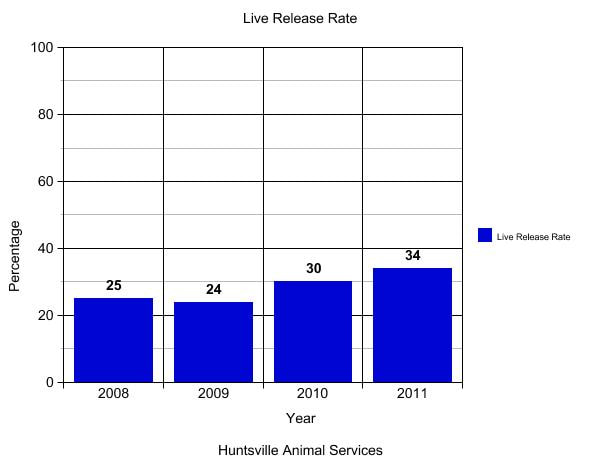
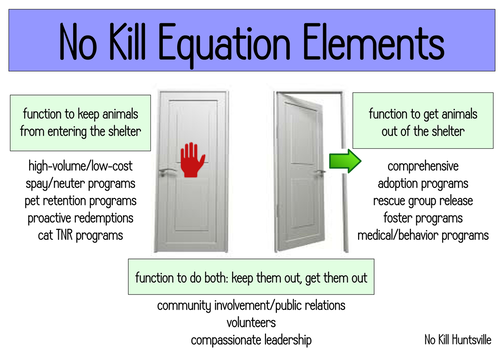
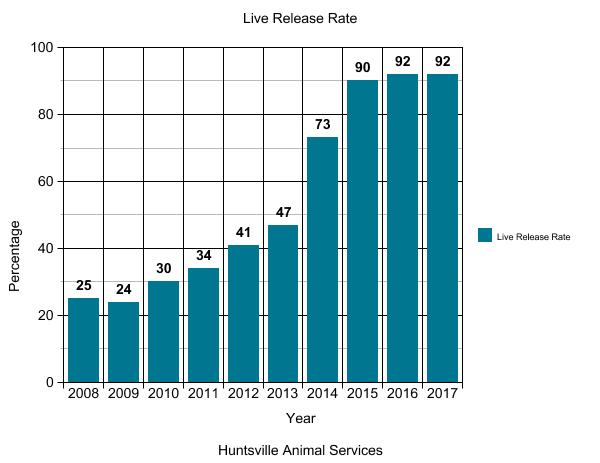
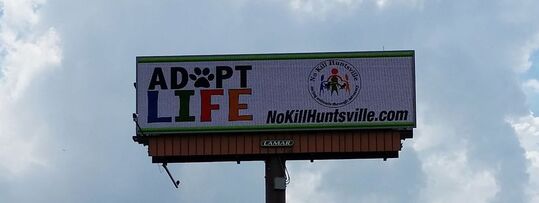
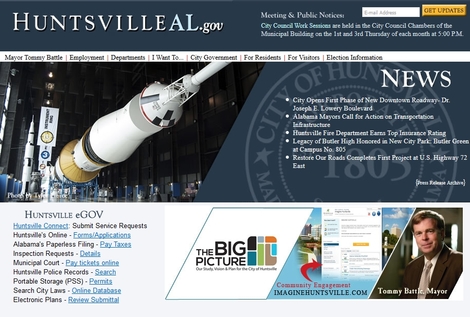
 RSS Feed
RSS Feed
